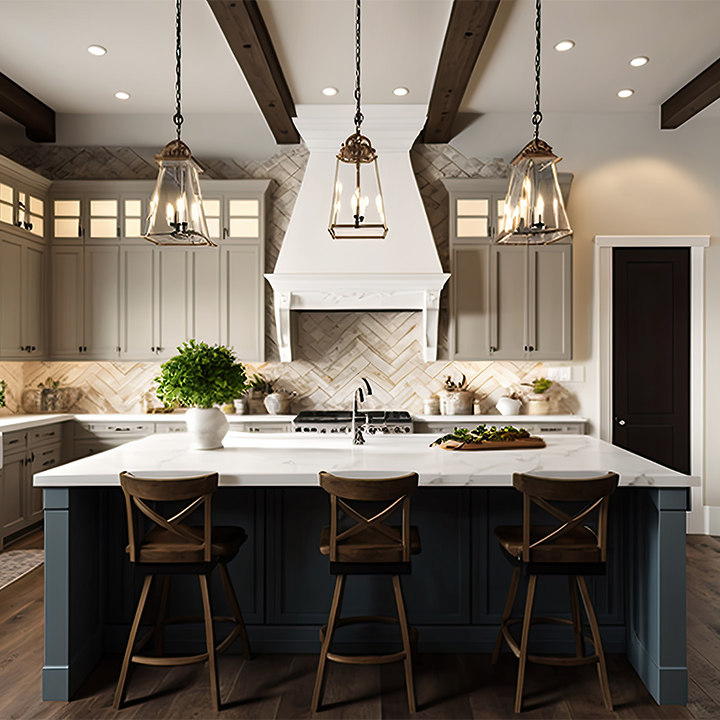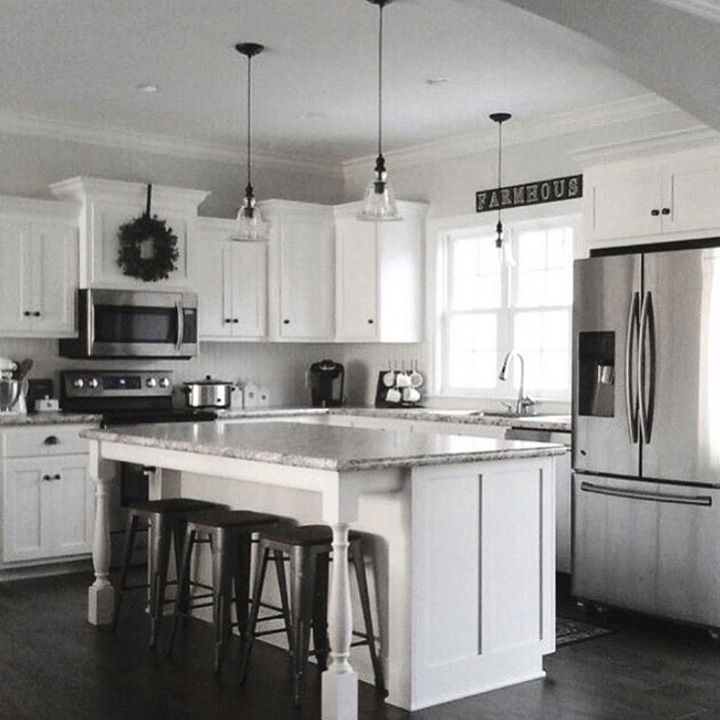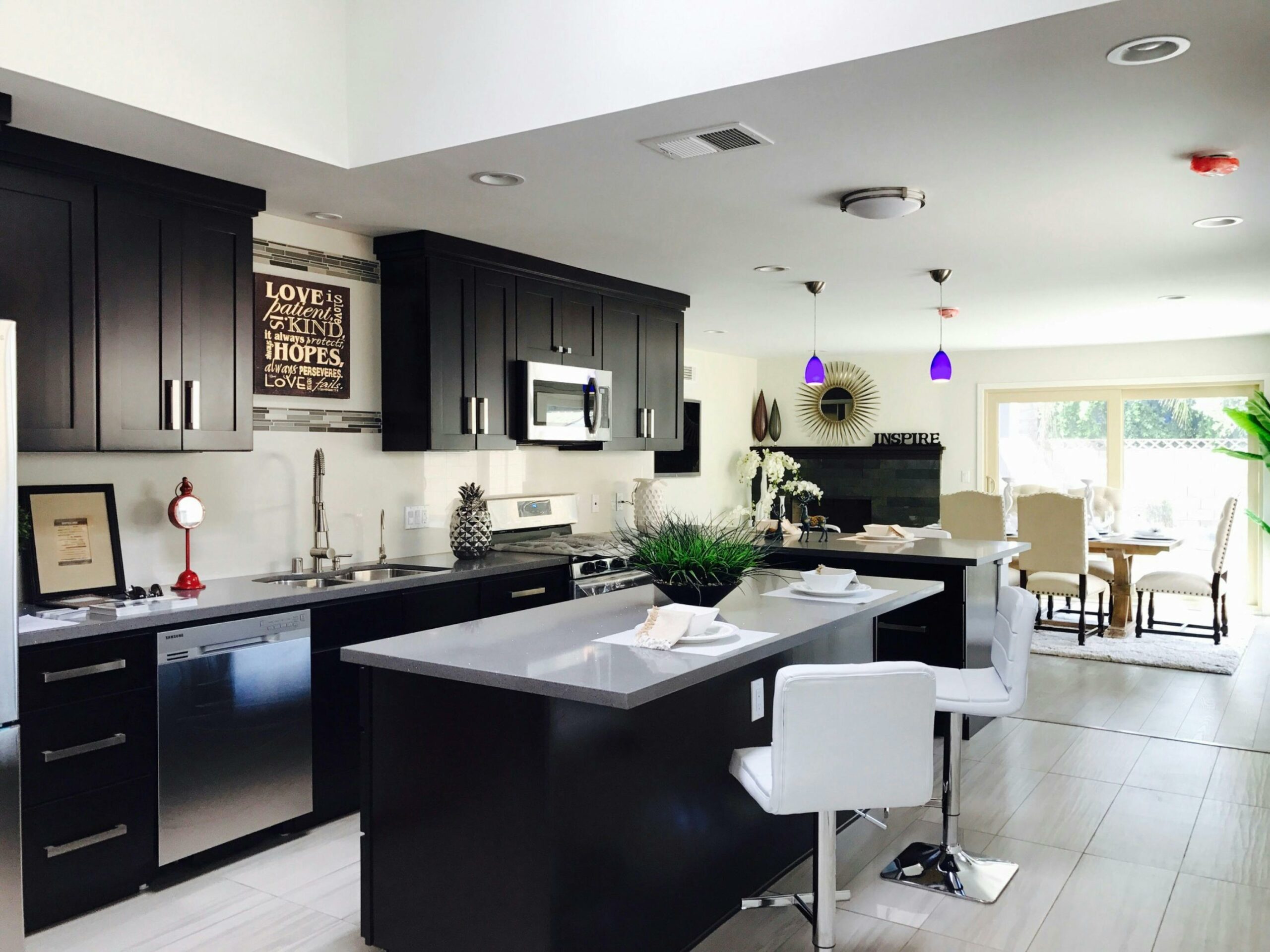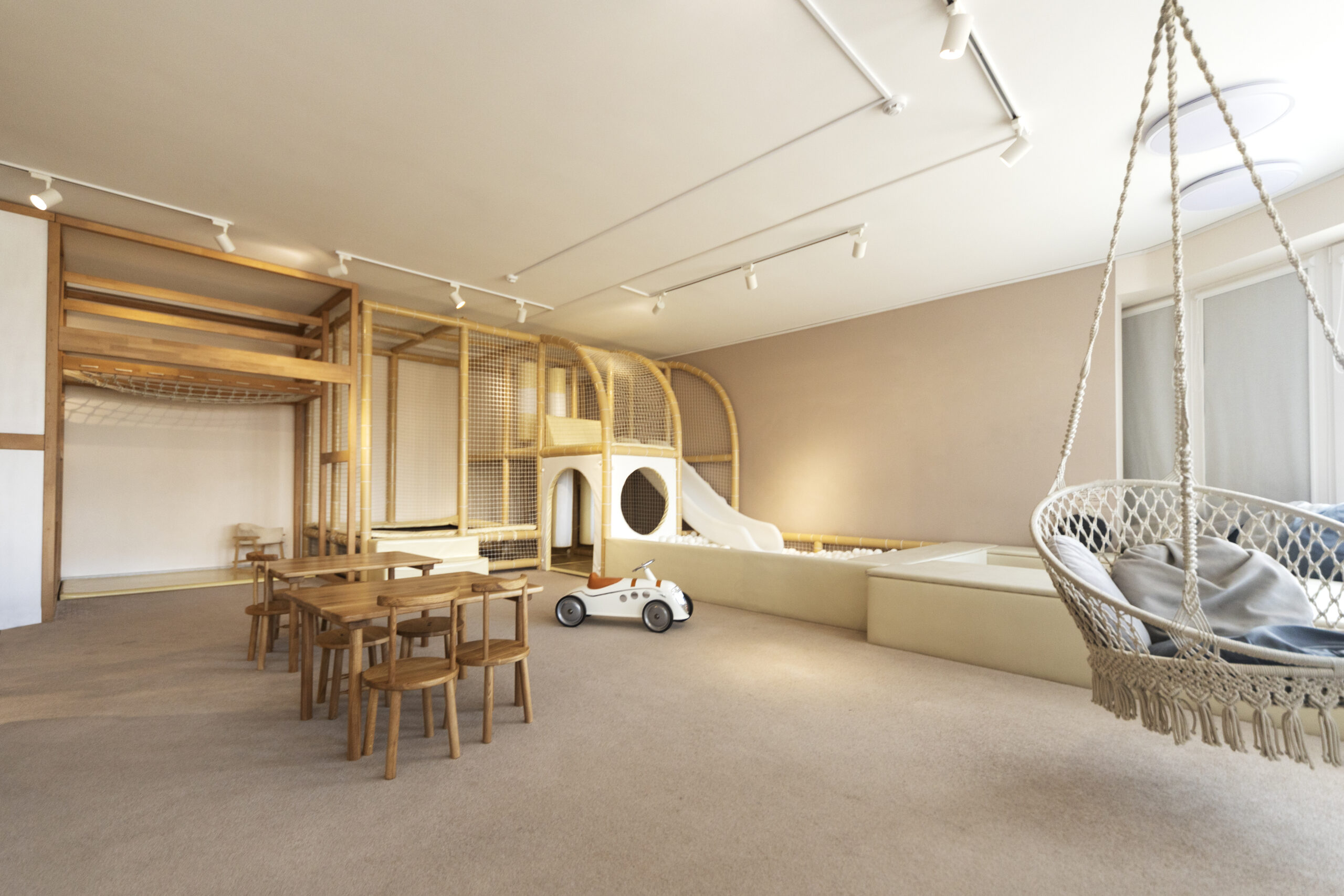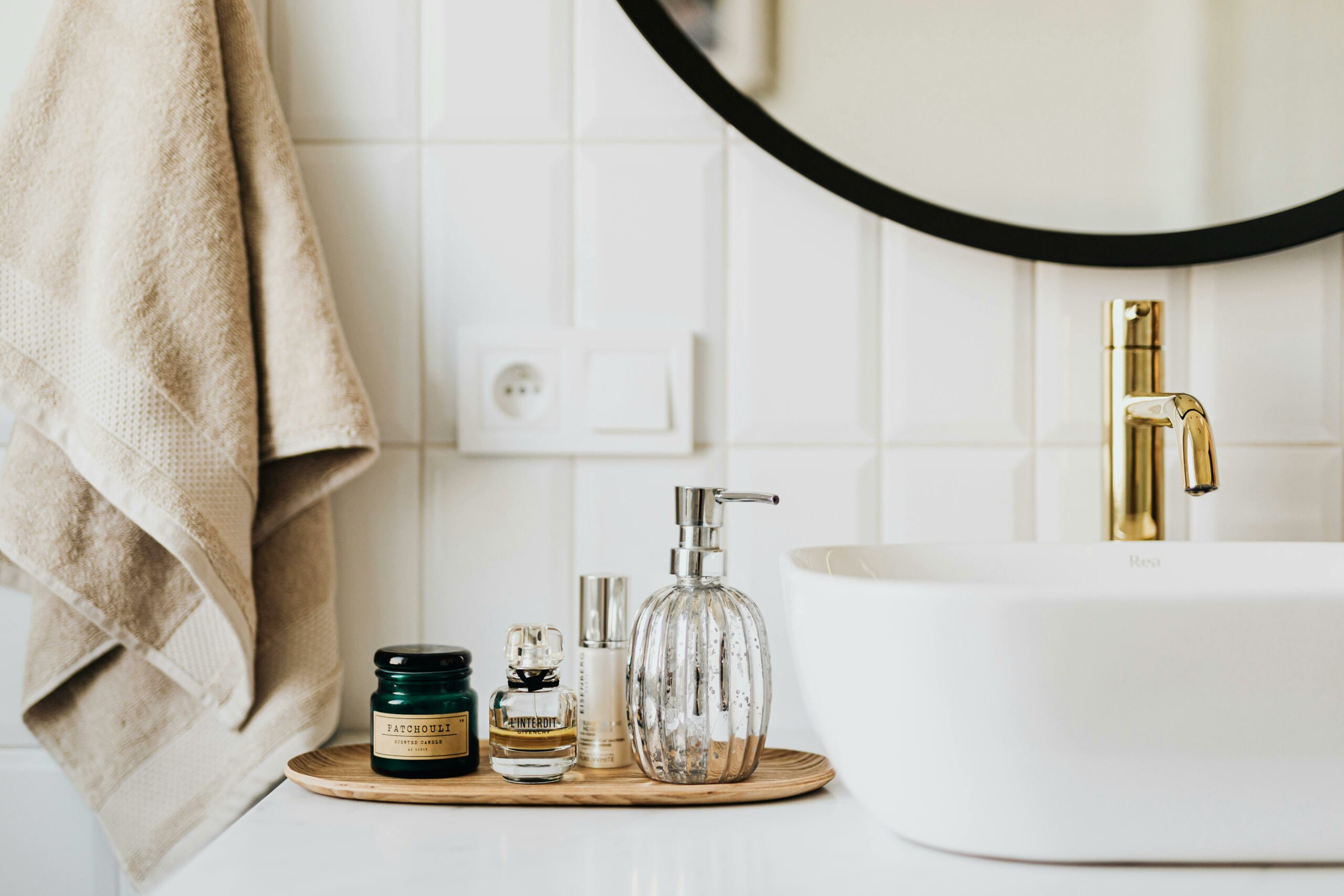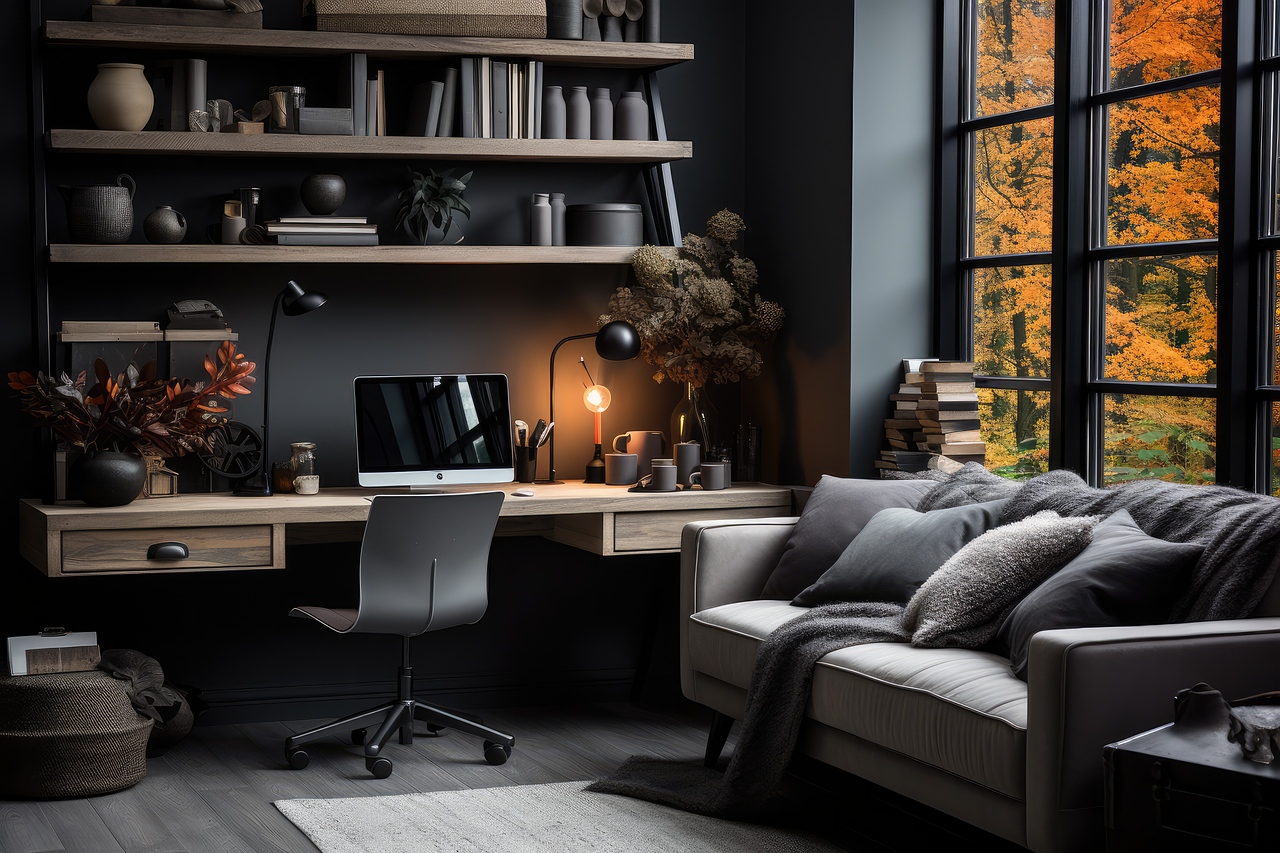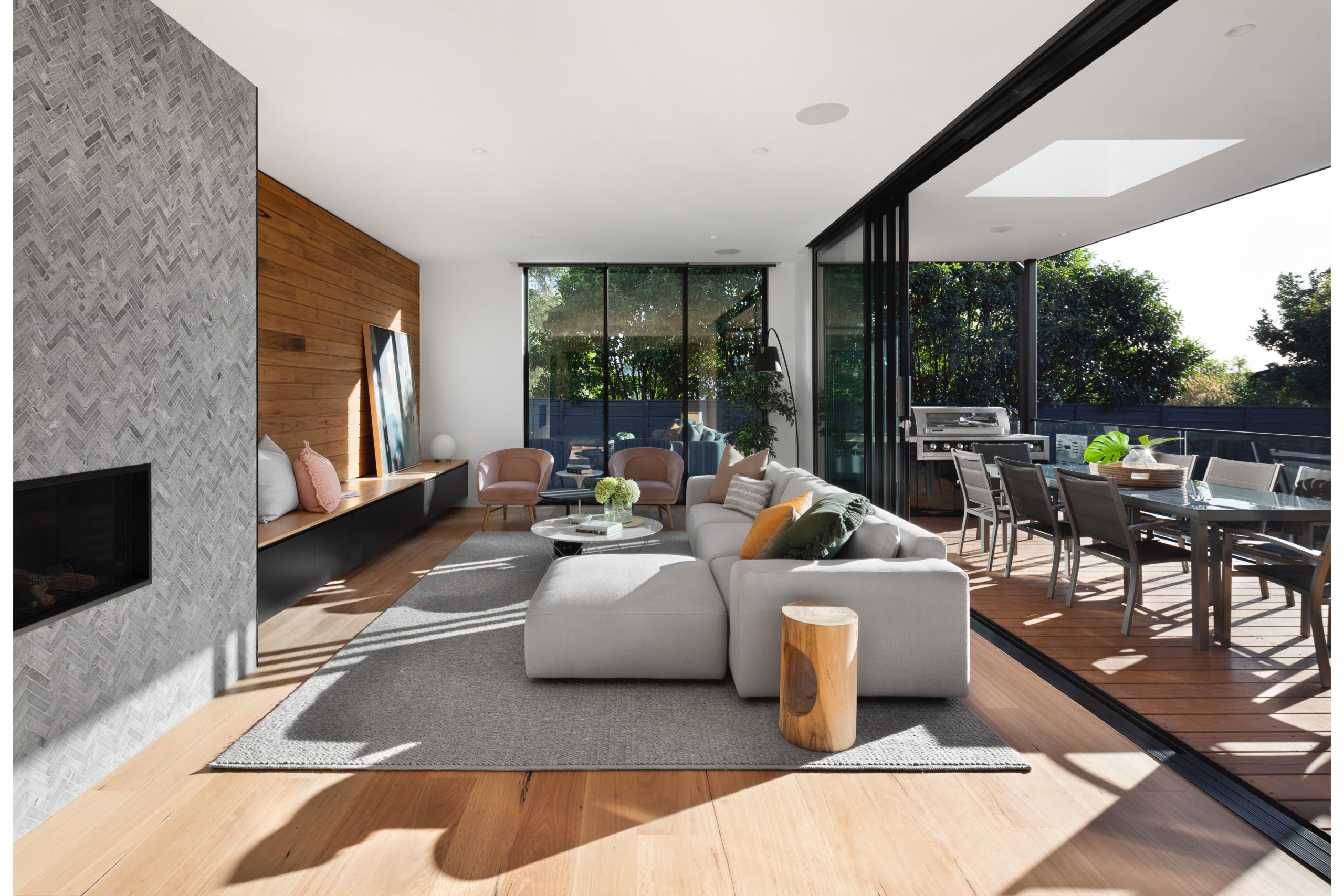Elevate Your Kitchen with Remodeling Excellence
Your kitchen is the heart of your home, and a well-planned remodel can transform it into a space that not only enhances functionality but also adds a touch of luxury to your daily life. At PMR Homes & Design, we understand the importance of every element in your kitchen. Let’s explore how our expertise can elevate every aspect of your kitchen remodeling project:
Cabinets:
Our custom-designed cabinets are the cornerstone of your kitchen’s storage and style. Choose from various materials, finishes, and configurations that suit your unique taste and maximize organization.
When planning a kitchen remodel, you have a variety of cabinet options to choose from, each offering different styles, materials, and features. Here are some common types of kitchen cabinets for your remodel:
- Shaker Cabinets: Shaker-style cabinets are known for their simple and clean lines. They have a timeless design that works well in traditional and contemporary kitchens.
- Raised-Panel Cabinets: Raised panel cabinets feature a raised center panel surrounded by a frame. They often have intricate details and a classic, traditional appearance.
- Flat-Panel Cabinets: Flat-panel cabinets, also known as slab cabinets, have a flat, unadorned door that creates a modern and minimalist look. They are popular in contemporary kitchen designs.
- Glass-Front Cabinets: Glass-front cabinets feature doors with glass panels. They are an excellent choice for displaying dishes, glassware, or collectibles while adding a touch of elegance to the kitchen.
- Inset Cabinets: Inset cabinets have doors and drawers that fit flush with the cabinet frame. This creates a sleek and sophisticated appearance. Inset cabinets are often associated with custom cabinetry.
- Open Shelving: Open shelving offers an open and airy feel in the kitchen. It allows you to display dishes, glassware, and decorative items. Keep in mind that it requires regular maintenance to keep it organized.
- Beadboard Cabinets: Beadboard cabinets have a textured surface with vertical grooves resembling beadboard wainscoting. They provide a charming, cottage-like aesthetic.
- Distressed Cabinets: Distressed cabinets have intentional imperfections to give them an aged or weathered look. They are often chosen for rustic or farmhouse-style kitchens.
- Frameless Cabinets: Frameless cabinets, also known as European-style cabinets, offer a sleek and modern appearance. They provide more accessibility and interior space compared to traditional framed cabinets.
- Custom Cabinets: Custom cabinets are designed and built to your exact specifications. They offer maximum flexibility in terms of style, materials, and storage solutions but tend to be more expensive.
- Pull-Out Cabinets: Pull-out cabinets feature shelves or trays that can be pulled out, providing easy access to items in the back of the cabinet. They are a practical choice for maximizing storage.
- Corner Cabinets: Corner cabinets are designed to make the most of corner spaces, which can be challenging to access. Options include lazy Susans, pull-out trays, and diagonal cabinets.
Pro Tip: The type of cabinets you choose depends on your kitchen’s style, your storage needs, and your budget. Consider the overall design, material, and hardware options to create a kitchen that’s both functional and visually appealing.
Counters:
The right countertop can be a focal point in your kitchen. Whether you prefer the timeless elegance of granite, the modern versatility of quartz, or the warmth of butcher block, we offer a selection that caters to your aesthetic and practical requirements.
When considering countertop options for a kitchen remodel, it’s essential to choose a material that aligns with your style preferences and practical needs. Here are common types of kitchen countertops for your remodel:
- Granite: Granite countertops are known for their durability and natural beauty. They come in various colors and patterns, making them a timeless choice for various kitchen styles.
- Quartz: Quartz countertops are engineered stone surfaces made from natural quartz and resin. They are non-porous, low-maintenance, and available in various colors and patterns.
- Marble: Marble countertops are prized for their elegant and luxurious appearance. They are often chosen for high-end kitchens but require regular sealing to prevent staining.
- Solid Surface: Solid surface countertops, such as Corian, provide a seamless and low-maintenance surface. They can be custom-formed into various shapes and designs.
- Butcher Block: Butcher block countertops offer a warm and natural appearance. They are made from wood and suitable for traditional and modern kitchens. Regular sealing and maintenance are necessary to prevent damage.
- Laminate: Laminate countertops are an affordable and versatile option. They come in various colors and patterns and are easy to clean. Modern laminate options mimic the look of natural materials.
- Concrete: Concrete countertops provide an industrial and modern look. They can be customized with various colors and finishes and require proper sealing to prevent staining.
- Stainless Steel: Stainless steel countertops are durable, resistant to heat and stains, and provide a sleek and contemporary look. They are often used in professional kitchens and modern home designs.
- Soapstone: Soapstone countertops have a distinctive, rustic appearance. They are heat-resistant and non-porous but may require regular maintenance with mineral oil to maintain their appearance.
- Recycled Glass: Recycled glass countertops are eco-friendly and come in vibrant colors and patterns. They are a sustainable choice for contemporary kitchens.
- Ceramic Tile: Countertops offer endless design possibilities with various colors and patterns. They are durable and resistant to heat and stains. Proper grouting and sealing are essential for maintenance.
- Quartzite: Quartzite countertops are natural stone surfaces known for their beauty and durability. They are more rigid and more heat-resistant than marble but still require sealing.
- Pro Tip: The choice of countertops depends on your aesthetic preferences, maintenance considerations, and budget. Consider how the material complements your kitchen design and whether it can withstand the demands of daily use.
Flooring:
Your kitchen floor needs to stand up to the demands of daily life. Our flooring options combine durability, style, and ease of maintenance, whether you opt for classic tiles, cozy wood, or easy-to-clean luxury vinyl.
Selecting the right flooring for your kitchen remodel is essential, as it needs to withstand high traffic, spills, and potential wear and tear. Here are some common types of kitchen flooring options for your remodel:
- Hardwood: Hardwood flooring offers a warm and classic look for kitchens. It’s durable and can be refinished if it gets scratched or worn. Engineered hardwood is a good option for kitchens as it’s more moisture-resistant.
- Laminate: Laminate flooring is a budget-friendly choice that can mimic the appearance of hardwood, tile, or stone. It’s easy to clean and durable, making it a practical option for kitchens.
- Vinyl: Vinyl flooring is available in various styles, including luxury vinyl planks and tiles. It’s water-resistant, durable, and comes in a wide range of designs, including those that resemble wood and stone.
- Ceramic Tile: Ceramic tiles are a popular choice for kitchen floors due to their durability, stain resistance, and versatility. They come in a variety of sizes, colors, and patterns.
- Porcelain Tile: Porcelain tiles are even more durable and water-resistant than ceramic tiles. They are an excellent choice for kitchens, especially in areas prone to spills and moisture.
- Natural Stone: Natural stone, such as granite, marble, or limestone, can be used for kitchen flooring to create an elegant and high-end look. It’s essential to seal natural stone to prevent staining.
- Cork: Cork flooring is a sustainable and resilient option. It provides a comfortable surface to stand on, is eco-friendly, and resists mold and mildew. It’s a unique choice for kitchens.
- Bamboo: Bamboo flooring is an eco-friendly option with a modern and exotic look. It’s harder than traditional hardwood and suitable for kitchens.
- Concrete: Concrete flooring can provide an industrial and modern look. It’s durable and easy to maintain. You can add stains or dyes to create unique designs.
- Linoleum: Linoleum flooring is eco-friendly and durable. It comes in various colors and patterns, making it a versatile option for kitchens.
Pro Tip: The kitchen flooring choice depends on your style preferences, maintenance considerations, and budget. It’s essential to select a flooring material that can withstand the demands of a kitchen environment while complementing your overall design.
Lighting:
Proper lighting is essential in creating a functional and inviting kitchen. Our range of lighting solutions includes ambient, task, and accent lighting to set the right mood and provide efficient workspace illumination.
Proper lighting is essential for a well-designed and functional kitchen. When planning a kitchen remodel, consider incorporating various types of lighting to create the right ambiance and ensure efficient workspace illumination. Here are some common types of lighting for a kitchen remodel:
- Task Lighting: Task lighting provides bright and concentrated light to specific work areas, such as countertops, cooking areas, and kitchen islands. Under-cabinet lights, recessed lights, and pendant lights are popular choices for task lighting.
- Ambient Lighting: Ambient lighting provides overall illumination in the kitchen. It helps create a welcoming and well-lit environment. Ceiling-mounted fixtures like chandeliers, flush-mount lights, or track lighting can be ambient lighting sources.
- Accent Lighting: Accent lighting adds a decorative touch to the kitchen by highlighting specific features or design elements. It’s often used to showcase artwork, glassware, or architectural details. Examples include wall sconces and strip lights.
- Pendant Lights: Pendant lights are versatile and can serve functional and decorative purposes. They are commonly used above kitchen islands or dining areas, providing task lighting and adding visual interest.
- Recessed Lighting: Recessed lights are installed into the ceiling and can provide even and efficient task lighting. They are a popular choice for illuminating countertops and workspaces.
- Cabinet Lighting: Cabinet lighting includes fixtures installed inside or under kitchen cabinets to illuminate countertops and provide additional task lighting. It can be particularly useful for food preparation.
- Track Lighting: Track lighting consists of multiple adjustable fixtures attached to a track. It allows you to direct light where needed, making it suitable for task and accent lighting.
- Toe Kick Lighting: Toe kick lighting is installed at the base of cabinets to create a soft, low-level glow. It can enhance the overall ambiance of the kitchen and provide safe lighting at night.
- Island Lighting: If you have a kitchen island, consider pendant lights or a chandelier to provide functional task lighting and a focal point in the kitchen.
- Natural Lighting: Don’t forget to maximize natural lighting through windows and skylights. Natural light can enhance the overall aesthetics of the kitchen and reduce the need for artificial lighting during the day.
Pro Tip: When planning your kitchen remodel, it’s essential to create a layered lighting scheme that combines these different types of lighting to achieve the right balance between functionality and aesthetics. Carefully consider the placement of fixtures to ensure that your kitchen is well-lit and visually appealing.
Surfaces:
From sinks to backsplashes, our selection of surfaces adds character and functionality to your kitchen. Choose from various materials, such as glass, tile, or stainless steel, to complete your ideal kitchen design.
In a kitchen remodel, surfaces play a crucial role in functionality and aesthetics. Choosing suitable surfaces for countertops, backsplashes, and other areas can make a significant impact on the overall design. Here are common types of surfaces used in a kitchen remodel:
- Countertops: The countertop is one of the most critical surfaces in the kitchen. Common materials for countertops include granite, quartz, marble, solid surface, butcher block, and laminate. Each material has its unique appearance, durability, and maintenance requirements.
- Backsplashes: Backsplashes protect the wall from splashes and spills while adding a decorative element. Tile, glass, ceramic, subway tile, and natural stone are popular choices for backsplash materials. You can get creative with colors and patterns to enhance the kitchen’s style.
- Sinks: The sink is an integral part of the kitchen. Common sink materials include stainless steel, cast iron, composite, and fireclay. Choose a material that complements the overall design and is easy to maintain.
- Appliances: Kitchen appliances, such as the refrigerator, stove, and dishwasher, have surfaces that are typically stainless steel or other metal finishes. Ensure that the appliance finishes harmonize with the overall kitchen design.
- Island Tops: If your kitchen has an island, consider the surface for the island top. It can match or contrast with the main countertops, using the same or different materials.
- Cabinetry Surfaces: The surface of your kitchen cabinets contributes to the overall style. Common cabinet surface materials include wood, laminate, veneer, and paint. Choose a finish that complements the kitchen’s aesthetic.
- Shelving Surfaces: If you have open shelving in your kitchen, the surface can be wood, glass, or metal. It should coordinate with the overall design and provide a clean and organized look.
- Ceiling Surfaces: Ceiling materials can impact the kitchen’s atmosphere. Common ceiling materials include drywall, beadboard, exposed beams, and tin tiles. The choice depends on the desired style, whether rustic, traditional, or modern.
Pro Tip: When selecting surfaces for your kitchen remodel, consider factors like durability, maintenance, and how they fit into the overall design theme. Combining these surfaces will contribute to the kitchen’s functionality and visual appeal.
Finishes:
The finishing touches make your kitchen uniquely yours. Select from various finishes, including chrome, brushed nickel, or matte black, to complement your chosen style.
In a kitchen remodel, finishes play a significant role in adding style and personality to the space. Choosing suitable finishes for your cabinetry, fixtures, and hardware can make a dramatic impact on the overall design. Here are some common types of finishes used in a kitchen remodel:
- Cabinet Finishes: The finish of your kitchen cabinets can significantly affect the overall aesthetic. Standard cabinet finishes include painted, stained, glazed, and distressed. Each finish imparts a distinct look, whether a sleek modern appearance or a rustic, aged feel.
- Appliance Finishes: Kitchen appliances often come in various finishes, with stainless steel being a popular choice for a contemporary look. You can also find appliances in black, white, or custom panel-ready options, allowing you to match or contrast with your cabinetry.
- Faucet and Sink Finishes: Finishing your faucets and sinks can add a decorative element to the kitchen. Standard faucet finishes include chrome, brushed nickel, oil-rubbed bronze, and matte black. Sink finishes range from stainless steel to porcelain.
- Lighting Finishes: Light fixtures in the kitchen can feature finishes that complement the design style. Options include polished brass, brushed copper, matte black, and antique bronze, among others. Choose finishes that match or contrast with the overall color scheme.
- Hardware Finishes: Cabinet hardware, such as knobs and pulls, can be found in various finishes, including polished chrome, brushed nickel, brass, and antique bronze. The choice of hardware finishes can have a significant impact on the kitchen’s overall style.
- Backsplash and Wall Finishes: Backsplash materials, such as tile, glass, and stone, come in various finishes and patterns. The finish can add texture and personality to the kitchen.
- Countertop Edge Finishes: If you have a natural stone or solid surface countertop, you can choose the edge finish. Options include beveled, bullnose, and ogee, among others. The edge finish can provide a subtle detail that complements the overall design.
- Flooring Finishes: Flooring finishes depend on the flooring material you choose. For example, hardwood flooring can have a variety of finishes, from matte to high gloss, altering the look and feel of the space.
- Ceiling Finishes: Ceiling finishes can include paint, beadboard, exposed beams, and other materials contributing to the kitchen’s atmosphere and style.
- Vent Hood Finishes: The finish of the vent hood over the cooking area can be customized to match or contrast with the kitchen’s cabinetry and fixtures.
Pro Tip: When selecting finishes for your kitchen remodel, consider how they fit into the overall design concept and how they contribute to the desired style. The combination of finishes can create a cohesive and visually appealing kitchen.
Your dream kitchen is just a remodel away. Contact us today to start a consultation and embark on a journey to transform your kitchen into the perfect combination of form and function. At PMR Homes & Design, we pride ourselves on delivering excellence in kitchen remodeling.
Blogs
Kitchen Renovation Guide: Crafting Your Dream Culinary Space
In the heart of every home lies the kitchen—a place [...]
Unleash Your Basement’s Potential: The PMR Home & Design Approach
At PMR Home & Design, we see a basement as [...]
Elevating Your Bathroom: The PMR Home & Design Way
When you think about transforming your home into a sanctuary [...]
Harmonizing Style and Practicality: Crafting Modern and Functional Spaces for Your Home
If you want to breathe new life into your living [...]
Designing Productive and Comfortable Workspaces
In an era where remote work has become the norm, [...]
Home Entertaining Spaces: Creating Inviting Areas for Socializing
Thinking about remodeling your kitchen and living room? It's not [...]




